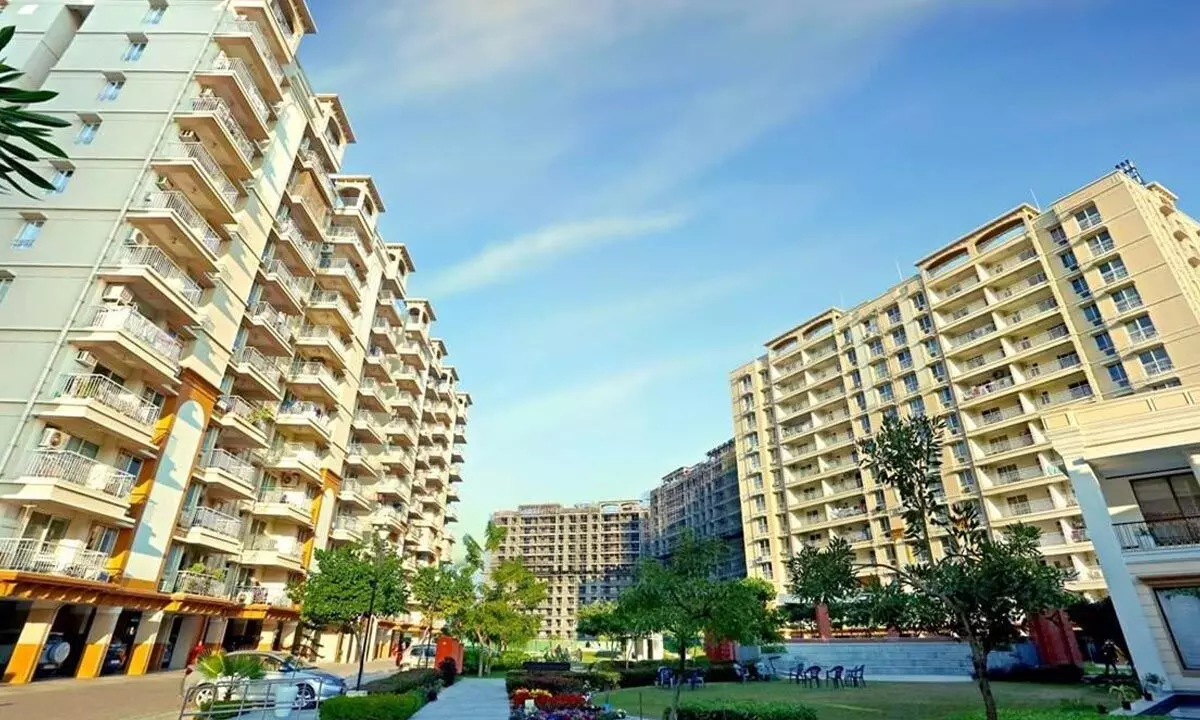High interest rates will take toll on affordable housing
The last Monetary Policy Committee (MPC) meeting of the Reserve Bank of India (RBI) in the current fiscal, may have generally gone down well among the country’s banking and financial sector.
image for illustrative purpose

The last Monetary Policy Committee (MPC) meeting of the Reserve Bank of India (RBI) in the current fiscal, may have generally gone down well among the country's banking and financial sector. There are however more sore points than one. With the continuous rise in interest rates, affordability is a major concern for home loan borrowers. The Reserve Bank of India's (RBI) Monetary Policy Committee (MPC) on Wednesday hiked the repo rate by 25 basis points to 6.50 per cent. With the cost of funding continuously going up, most banks and housing finance companies are expected to increase home loan rates. For instance, if you have borrowed a home loan of Rs 30 lakh at 8.50 per cent per annum for a tenure of 20 years and the interest is hiked to 8.75 per cent, your EMI will go up approximately by Rs 476 from Rs 26,035 to Rs 26,511.
Some analysts think that RBI has come far from synchronised rate hikes in its policy, as inflation outlook is beaming. Attempting to taper inflation, the hike in the repo rate, (which was not unexpected, to be honest), will force the banks to increase lending rates impacting the quantum of home loans off-take and pushing EMIs upwards. The EMI-driven affordable housing market will thus have a cumulative effect and gradually impact the sales velocity in the real estate market in the times to come. A lesser repo rate hike might have helped tackle inflation, yet managing growth. Realty markets like that of Mumbai, which have already sustained increased interest rates earlier, will further get impacted for the home buyers in the pricing category of Rs 1 crore and above.
There is another school of thought that feels that this hike in interest rate will not affect home buyer sentiments much, as there is a strong demand for housing. The recent positive budget announcements which aim at putting more money into the hands of the home buyer, will fuel demand. This coupled with the additional outlay provided in the PMAY will give a definite thrust to the mission of providing housing for all. While the hike may increase the cost of borrowing, it also reflects the central bank's efforts to control inflation and maintain stability in the economy.
The real estate market will continue to be driven by various other factors such as supply and demand, regulatory framework, and overall economic conditions. And this set of arguments cannot be ruled out altogether.
Even as this debate over whether this will have large impact on affordable housing segment goes on, one must think of ways to counter this. For instance, a home buyer needs to opt for a longer loan tenure, which in turn, will reduce the monthly installment. However, overall interest rate in such a case will be higher. One must choose a floating interest rate as this type of rate is tied to market conditions, and if interest rates decrease, your EMI will decrease too. One can also think of making a higher down payment. By paying a larger amount upfront, the loan amount and hence the EMI will be lower. Then if one has a high-interest rate loan, one can transfer the balance to another lender offering a lower rate and lower one's EMI. It's important to keep in mind that rising interest rates can have a significant impact on one's monthly mortgage payment, so it's important to be proactive and consider one's options carefully.

